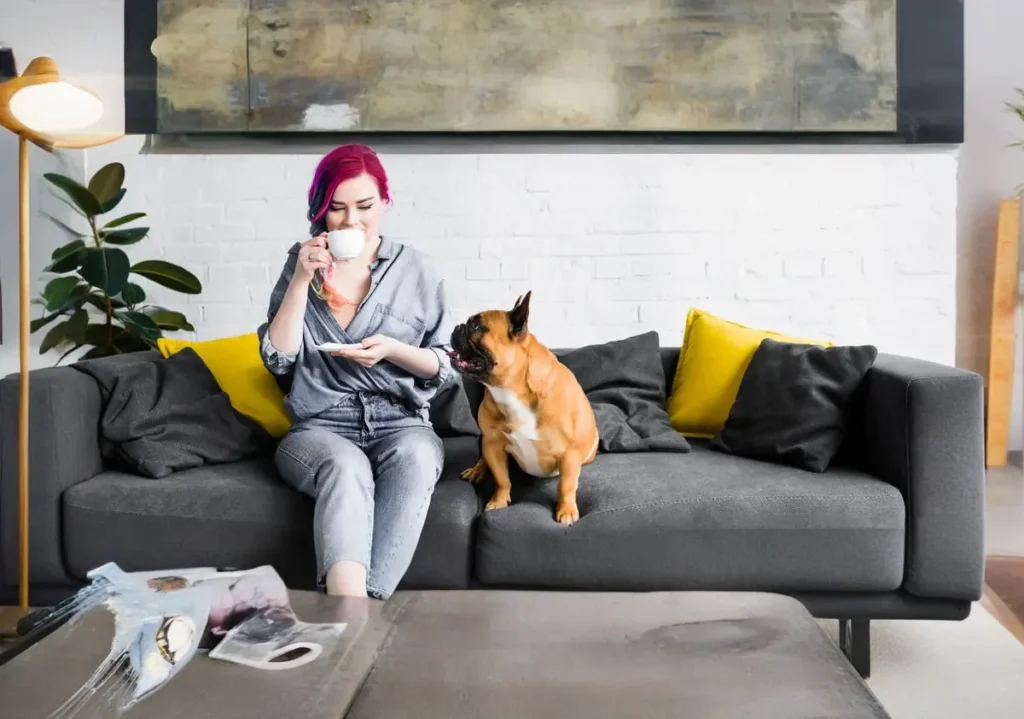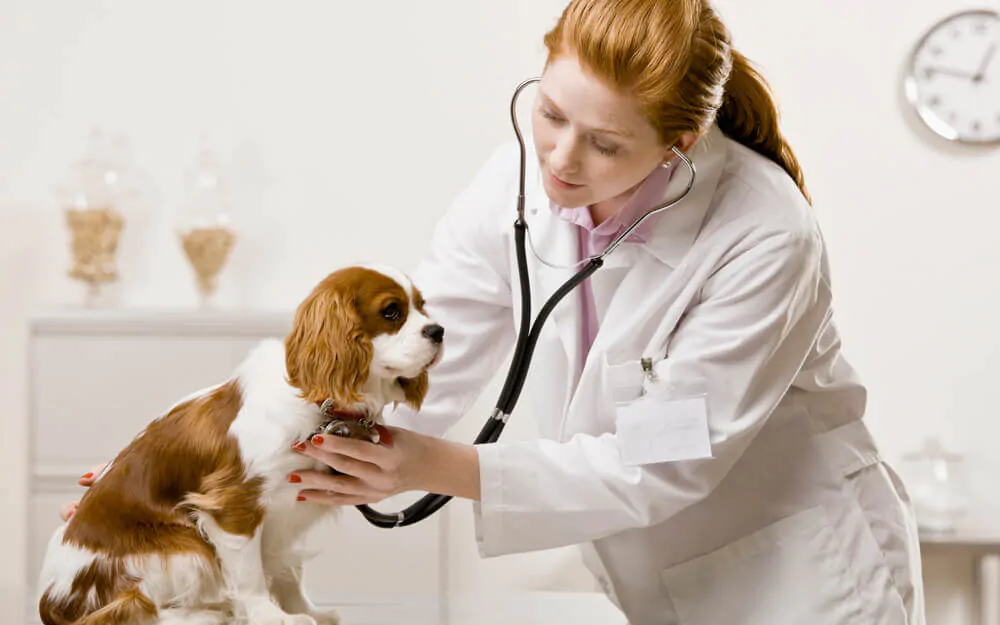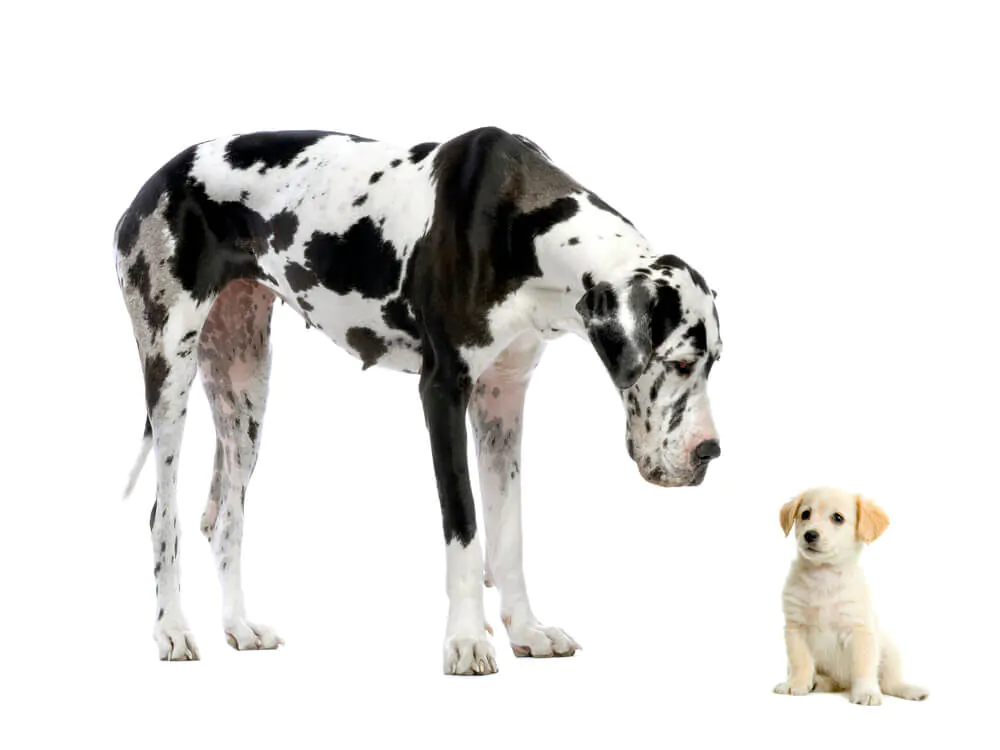You probably know that you shouldn’t let your dog sip your coffee, but in this article, you can find the answers to the question ‘Why is coffee bad for dogs?’

For dog lovers, it can be hard to deny their pets anything, especially something that seems as harmless as a morning cup of coffee. It is a part of your morning routine, so you might be wondering whether your dog can share in some of your joy.
Despite veterinarians advising against feeding dogs table scraps, I have met a few owners (myself included) unable to resist a canine’s begging stares. But there are some things that are just too dangerous to let your pets taste, and unfortunately, coffee is one of those things. So, no, you shouldn’t get your dog their own bowl of coffee in the morning.
Within this article, we take a look at why is coffee bad for dogs and what factors influence how your pet reacts to accidentally consuming a certain amount of caffeine. They include the size of the dog, the amount of caffeine consumed, and if it’s suffering from any side effects.
Is Coffee Actually Bad For Dogs?
First of all, it’s important to address the core issue: coffee is definitely bad for dogs. The degree to which it’s dangerous depends on the breed and size of the dog, but the American Kennel Club is clear: coffee is dangerous for any and all dogs, and if your dog does consume some coffee, they need to be monitored closely.
The level of poisoning depends on the dose, so if your dog has just licked up some residue from the bottom of your coffee cup, then they’re probably not in danger. However, if they’ve eaten coffee grounds or lapped up a significant amount of brewed coffee, you should definitely monitor them and get them to a vet if possible.
Thus, if you are Googling ‘Can dogs drink coffee’, the answer is a clear ‘no!’. The drink is quite simply not made for ‘man’s best friend’, and although your pup may be curious, they are far better off not knowing the taste of your cup of joe. You might also find our guide on whether dogs can have coffee ice cream useful.
Why Is Coffee Bad For Dogs?
So why is coffee so bad for dogs when humans can enjoy it just fine? For the most part, the answer is simple: caffeine is poison for dogs. But why is it poisonous? That answer is a little more complicated.

The basic answer is that dogs don’t have the proper biology to process caffeine safely. When a dog consumes caffeine, it can have some very nasty effects, so if you’re sensitive to descriptions of dangerous symptoms to animals, you might want to skip ahead.
Since caffeine is a stimulant, some of the symptoms of caffeine toxicity or caffeine poisoning in dogs are similar to what humans might experience with a bit too much coffee in the morning: their heart rate becomes elevated, leading to hyperactivity or stress reactions. As a result, your dog might pace around, startle easily, act restless, or even vocalize (bark) more than usual.
A more dangerous aspect of caffeine poisoning is that the stimulant tends to raise blood pressure. In humans, this is minimal. In fact, even some people with high blood pressure conditions are still allowed to drink coffee – but in dogs, it can lead to cardiac arrhythmia (irregular heartbeat), which can be a very dangerous condition for canines.
Veterinarians also explain that caffeine poisoning can lead to problems for a dog’s central nervous system. Your dog might lose control of its muscles, develop tremors, or–even more dangerously– have seizures.
What Happens If A Dog Eats Coffee Grounds?
As we previously said, the effects of caffeine depend on the size of the dog and the amount of caffeine consumed. However, if your dog got a hold of your coffee grounds and decided it was a good idea to eat them, you should call your vet or pet poison helpline as soon as possible.
Coffee grounds are generally high in caffeine content, so dogs consuming these is usually a cause for concern. If you are a pet owner and your furry friend has consumed coffee beans, you should monitor them for the following side effects and signs of caffeine toxicity after contacting your vet:
- Hyperactivity and restlessness. Your dog might seem anxious and have an increased tendency to bark.
- Vomiting. The dog’s body might reject the caffeine entirely and throw up what it’s consumed.
- An elevated body temperature. This should be closely monitored, as it can lead to other complications.
- An increase in blood pressure (hypertension). Try to keep your dog relaxed in such instances.
- An increased heart rate (tachycardia) and/or an abnormal heart rhythm (arrhythmia). Your vet will be able to monitor this and report if there is a problem.
- Collapse and/ or seizures. If this happens, you must call for emergency veterinarian help immediately.
It’s not only ground beans and your morning cup of joe that contain potentially harmful caffeine for dogs. You should also contact your local veterinarian if your pet consumes other caffeinated foodstuffs, such as energy drinks, tea bags, candy bars, human medication, or diet pills. You would be surprised how many stories there are from vets about curious pups consuming things that they shouldn’t.
Size Matters
The amount of danger coffee presents for your dog depends on the amount of coffee consumed and the size of your dog, and the dog’s weight. For a large dog breed, such as a German Shepherd or a Mastiff, a sip or two of coffee might trigger some hyperactivity but is unlikely to be fatal–whereas. For small dogs, such as a Chihuahua or a Yorkie, it could cause some more severe symptoms, and it can even be fatal in some instances.
The type of coffee your dog is exposed to also makes a difference because caffeine levels can vary considerably. Coffee grounds are one of the biggest dangers because a lot of caffeine remains present in the beans even after brewing.

For brewed coffee itself, espresso is more dangerous than drip or instant coffee because it’s more concentrated. Basically: the more intense the coffee exposure, the more likely it is to cause problems.
Decaffeinated coffee isn’t good for dogs. However, decaf is unlikely to cause as severe issues as its highly caffeinated counterpart. If your dog drank coffee from a cup of decaf, you should still keep a close eye on them and watch out for potential side effects, as even trace amounts of caffeine can be harmful to some dogs
How To Keep Your Dog Safe
If your furry friend has already consumed coffee, particularly if it’s a concentrated amount, you should contact your veterinarian for advice. That is because the symptoms of caffeine poisoning can be very harmful to dogs, and in the most severe cases, they can even be fatal.
Dogs are curious creatures and definitely don’t have the awareness to stay away from things that might hurt them. Therefore, as the owner, it’s important to be vigilant and take steps to prevent your dog from getting into your coffee. They can be a persistent bunch, so you doing whatever you can could make a big difference.
The AKC and other sources recommend training them to make sure your dog doesn’t get into the trash, or–if your dog is especially persistent–wrapping spent coffee grounds in plastic before throwing them away, so they’re less likely to be eaten. Or even disposing of them in an area that your dog does not have access to.
And, of course, the easiest step to take is to make sure you don’t give your dog coffee as a treat! Keep them away from your coffee cup, and offer them other treats to ensure they don’t get fixated on what they can’t have. Starbucks and other coffee shops often offer “puppuccinos,” which are tiny cups of milk foam or a little whipped cream, so your dog can feel included and get a safe treat while you enjoy your coffee.
